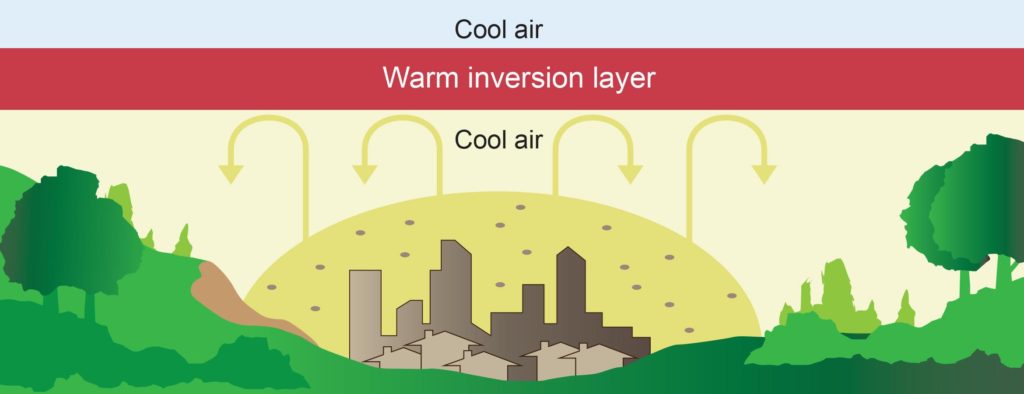If you own a home or business in or near a valley, you need to be aware of temperature inversions and how they affect your air quality. Also called thermal inversions, temperature inversions are also more prevalent when and where the nights are longer and cooler. Awareness of temperature inversions will help any home or business choose the best air filter for maximum health and comfort.
Thermal Inversions
Normally, air expands and cools as it rises through the atmosphere, making the upper atmosphere cooler than the lower atmosphere. During a thermal inversion, though, the air aloft is warmer than the cooler air below, creating a lid on top of the air closer to the ground.
There are two types of thermal inversions. The first is called a surface inversion, which occurs near the earth’s surface. The second is an aloft inversion, which occurs further upward in the atmosphere.
Thermal Inversions and Air Quality
Surface thermal inversions affect air quality especially during the winter when thermal inversions are strongest. Areas of high pressure and low wind will experience longer inversions.
The warmer air above the cooler air suppresses vertical mixing of air and traps pollutants. Exhaust from automobiles, boats, trains, and manufacturing stay trapped close to the ground, affecting air quality.
The strength and duration of a temperature inversion is measured by an Air Quality Index (AQI). Stronger inversions will lead to higher pollution levels and a high AQI level.
Air Filtration and Thermal Inversions
Homes and business in geographic areas that experience thermal inversions may need different air filters during these times of year than during other times of the year. Depending on whether your home or business is near high traffic areas or a manufacturing plant, you may consider using air filters with a higher MERV rating. Also, air filters may need to be changed more often during thermal inversions.
Conclusion
It is important to be aware of the air quality of the area in which you live, especially to ensure that your indoor air quality does not suffer because of the changing AQI outside. Spokane Valley, Washington, is a typical example of an area that experiences frequent thermal inversions. While the air may seem clear and clean some of the year, during other parts of the year – during thermal inversions – air quality is poorer.
For this reason, it may be time to reconsider your air filtration needs this winter. Engineered Filtration Systems carries a full line of commercial air filters to suit nearly any commercial environment. For more information on air filter selection in your area, contact Engineered Filtration Systems, at 1-800-796-4337. Or, visit us on the web to learn more.

